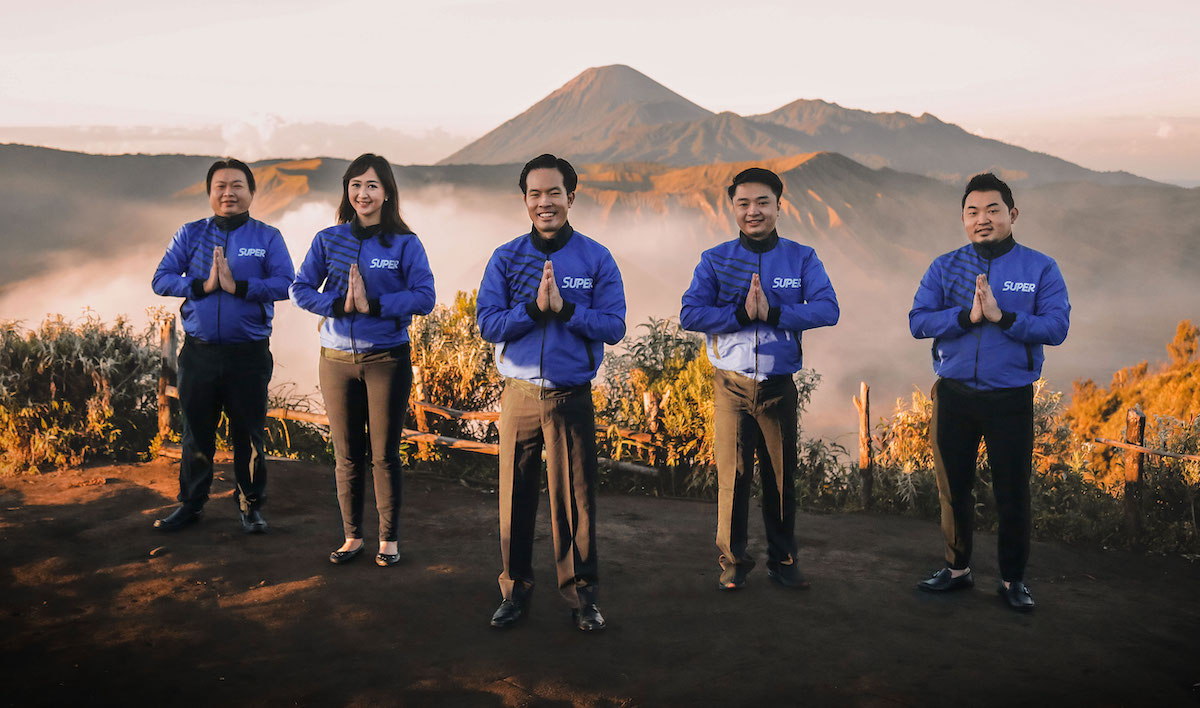Indonesian social commerce platform Super said on Thursday that it bagged USD 28 million in an oversubscribed Series B round led by SoftBank Ventures Asia, bringing its total funding to USD 36 million. The firm plans to expand into the eastern provinces of Indonesia and grow its new white label fresh grocery brand SuperEats.
The startup works with local communities to address challenges in conventional retail and supply chain management in lower-tiered cities and rural areas especially in East Java, co-founder and CEO Steven Wongsoredjo told KrASIA. Super uses an agent-based model for group buying and logistics so customers can make bulk orders and attain attractive prices.
Wongsoredjo said there are at least two major problems in retail that drive prices higher in rural areas: low purchasing power and small transaction volume in each household, combined with deficient infrastructure. “We work with an agent who collects orders from the community. This way, goods are delivered simultaneously so that they are more efficient,” he said.
Banking on local communities
With hundreds of islands, Indonesia’s infrastructure is spotty in many corners of the country. Even in Java, the most densely populated island, rural areas have unpaved or narrow roads, making it difficult for large vehicles to access these locations. “We partner with local communities for delivery. They’re already familiar with specific geographical areas in their towns, which makes the entire logistics process easier,” Wongsoredjo said. This helps Super to reduce costs, lowering prices by 10–20% for end customers.
Super currently operates across 17 cities in East Java. To ensure quality, group buying agents must go through a manual recruitment process, while applicants with prior trading experience are preferred. The company says that these agents can generate additional income equal to the minimum wage in their areas. Super also runs warehouse management systems to optimize routes and track service level expectations among delivery partners.
On the supply side, the firm collaborates with major FMCG companies and local distributors who have difficulties reaching remote areas. Currently, the startup works with over 100 corporate partners, Wongsoredjo said.
The next leaders in social commerce
Social commerce is still nascent in Indonesia, and Wongsoredjo believes that the field holds many opportunities. “For example, there are platforms that only focus on Jakarta, or sell specific products such as fresh produce or products from Muslim communities,” he said. “I think, in the next three to five years, we’ll have two or three big players in this sector.”
In the future, the startup wants to become the Walmart of Indonesia. “We already have a white label brand, which is a profit generator for us. We have enablers such as warehouses, and on the retail side, we have thousands of agents,” Wongsoredjo said. “Our long-term goal is to be like Walmart but without having physical stores, so it’s very light in assets with efficient marketing, serving Indonesia’s second- and third-tier cities.”
Existing investors Amasia, Insignia Ventures Partners, Y-Combinator Continuity Fund, and Bain Capital co-chairman and co-owner of the Boston Celtics Stephen Pagliuca participated in this funding round, alongside new investors DST Global and TNB Aura.
